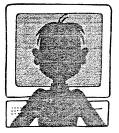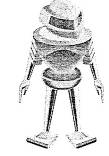题目内容
There are hundreds of funny and strange expressions in the English language. A lot of them include country names or nationalities. Take these examples:
The Dutch(丹麦人)are the target of most English expressions about nationalities. Why are there so many jokes about the Dutch in English? And what do these expressions mean? In the 17th and early 18th centuries, there were three wars between the British and the Dutch, and Dutch became a bad word. So double Dutch means something that has no meaning or is impossible to understand. A Dutch uncle is someone who gives much stronger advice than they need to. There are later expressions, which are funnier and kinder, like to go Dutch, which is nowadays a popular expression. It means to pay for your part of a bill. This often happens when a group of friends have a meal together, and each person pays for the food they ate. I’m a Dutchman is another commonly used expression. This means not being able to believe something.
An expression with a similar meaning to double Dutch is it’s all Greek to me, which means I don’t understand. The expression was made famous in Shakespeare’s play Julius Caesar although the expression is actually hundreds of years older.
If you take French leave, you are not present or leave somewhere without permission. For example, you could take French leave from a classroom or the place where you work. This expression is from the 18th century when French people left parties without saying goodbye to the host or hostess.
There are Chinese whispers, which mean confused(令人困惑的)messages. This describes the fact that a message can often change as it is passed from person to person. This expression comes from the First World War when foreigners were often confused by Chinese language.
Many people find English expressions confusing, but now that you know about some of them, you can easily have fun finding out many more funny English expressions.
小题1:Are there many jokes about the Dutch in English?
小题2:When did Dutch become a bad word?
小题3:What does “French leave” mean?
小题4:Which three expressions mentioned above have similar meanings?
小题5:What do the funny and strange expressions in the passage have in common?
The Dutch(丹麦人)are the target of most English expressions about nationalities. Why are there so many jokes about the Dutch in English? And what do these expressions mean? In the 17th and early 18th centuries, there were three wars between the British and the Dutch, and Dutch became a bad word. So double Dutch means something that has no meaning or is impossible to understand. A Dutch uncle is someone who gives much stronger advice than they need to. There are later expressions, which are funnier and kinder, like to go Dutch, which is nowadays a popular expression. It means to pay for your part of a bill. This often happens when a group of friends have a meal together, and each person pays for the food they ate. I’m a Dutchman is another commonly used expression. This means not being able to believe something.
An expression with a similar meaning to double Dutch is it’s all Greek to me, which means I don’t understand. The expression was made famous in Shakespeare’s play Julius Caesar although the expression is actually hundreds of years older.
If you take French leave, you are not present or leave somewhere without permission. For example, you could take French leave from a classroom or the place where you work. This expression is from the 18th century when French people left parties without saying goodbye to the host or hostess.
There are Chinese whispers, which mean confused(令人困惑的)messages. This describes the fact that a message can often change as it is passed from person to person. This expression comes from the First World War when foreigners were often confused by Chinese language.
Many people find English expressions confusing, but now that you know about some of them, you can easily have fun finding out many more funny English expressions.
小题1:Are there many jokes about the Dutch in English?
小题2:When did Dutch become a bad word?
小题3:What does “French leave” mean?
小题4:Which three expressions mentioned above have similar meanings?
小题5:What do the funny and strange expressions in the passage have in common?
小题1:Yes. / Yes, there are.
小题2:In the 17th and early 18th centuries.
小题3:It means you are not present or leave somewhere without permission.
小题4:Double Dutch, it’s all Greek to me and Chinese whispers.
小题5:They all include nationalities and have historic beginnings.
小题1:根据Why are there so many jokes about the Dutch in English? 可知英语中有许多关于丹麦人的笑话,故答:Yes. / Yes, there are.
小题2:根据In the 17th and early 18th centuries, there were three wars between the British and the Dutch, and Dutch became a bad word.可知答:In the 17th and early 18th centuries.
小题3:根据第三段If you take French leave, you are not present or leave somewhere without permission. 描述,可知答:It means you are not present or leave somewhere without permission.
小题4:根据An expression with a similar meaning to double Dutch is it’s all Greek to me, which means I don’t understand.及There are Chinese whispers, which mean confused(令人困惑的)messages.可知这三个表达式都表示不明白的含义.故答:Double Dutch, it’s all Greek to me and Chinese whispers.
小题5:根据A lot of them include country names or nationalities. 及下文描述,可知这些表达式都含有国家名称,并来自历史典故.故答:They all include nationalities and have historic beginnings.

练习册系列答案
相关题目


